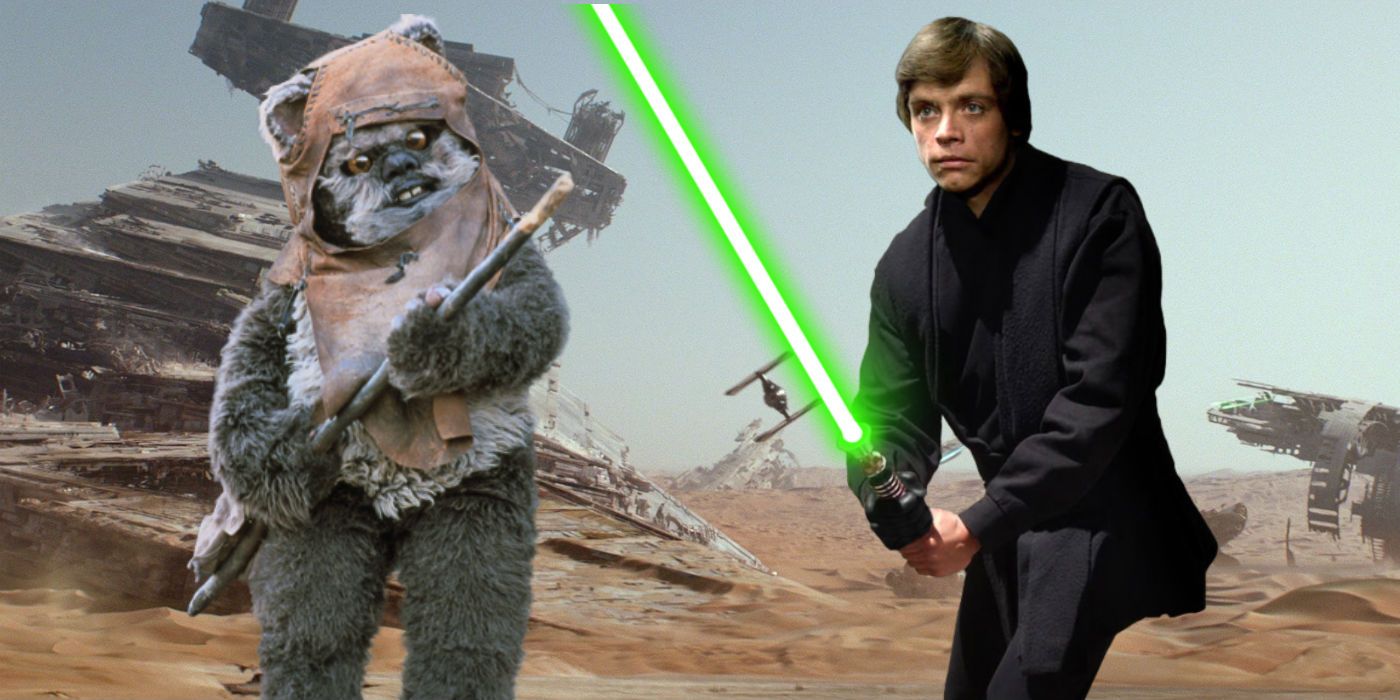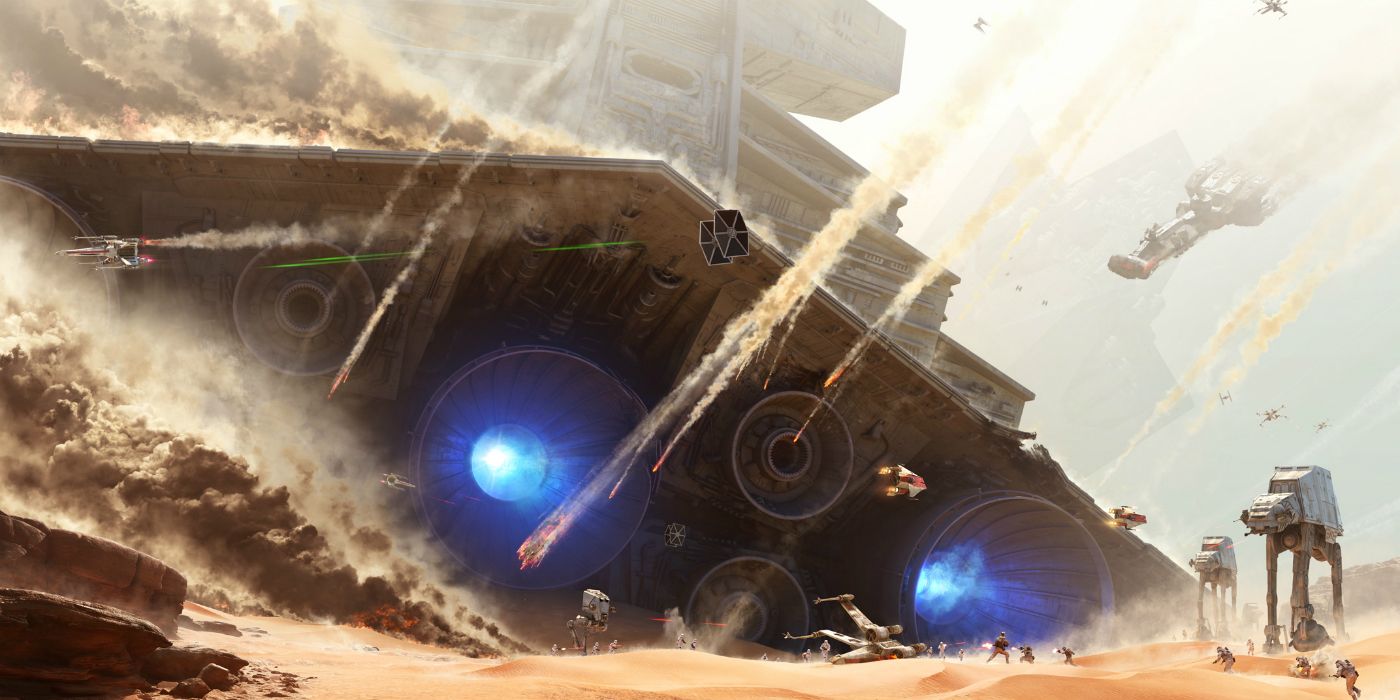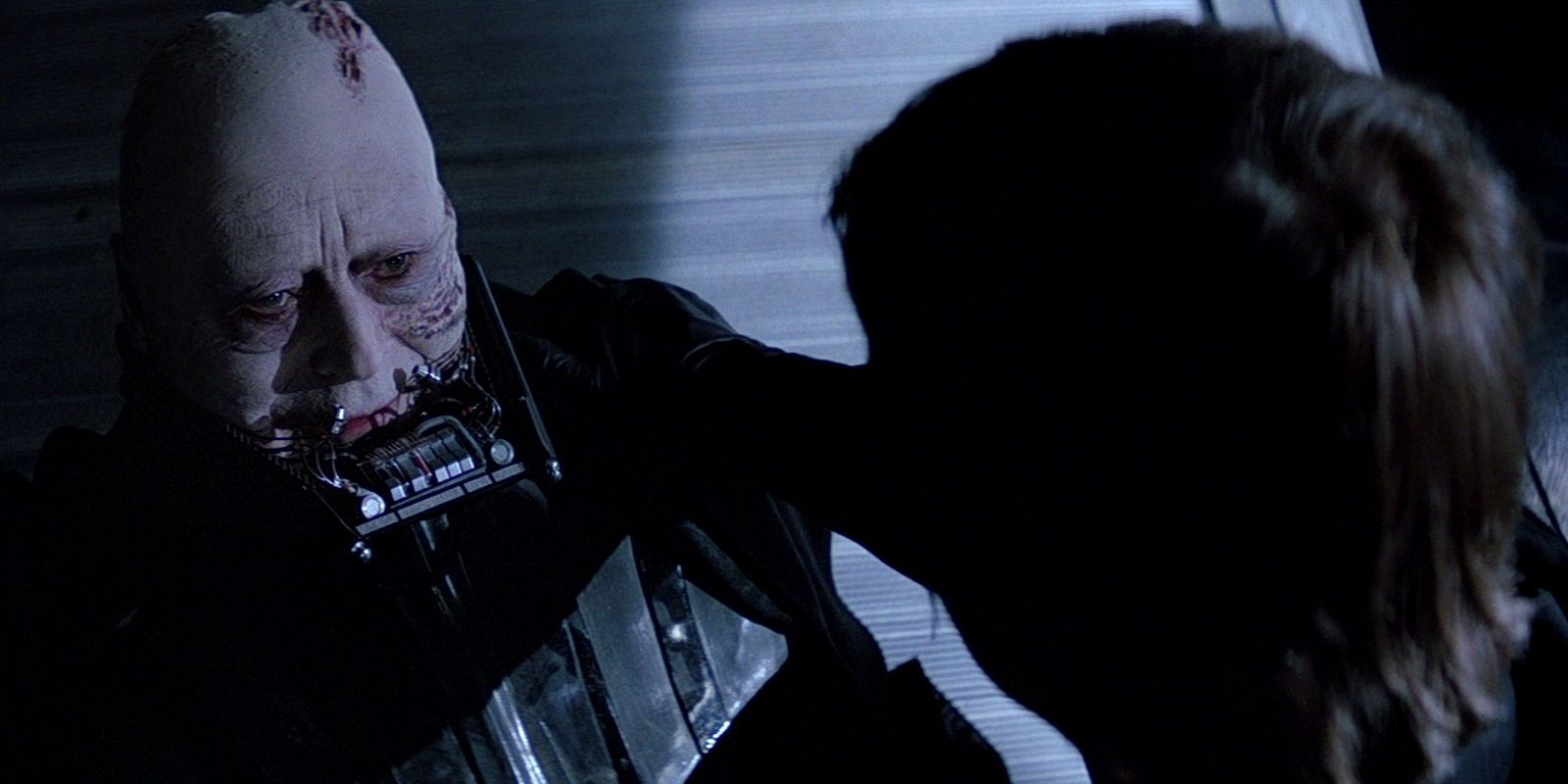
The Mandalorian has helped to correct the circumstances of the Empire's fall in the Star Wars story. At the climax of both Return of the Jedi and George Lucas' original Star Wars trilogy, Luke Skywalker defeats Darth Vader, who is then compelled to finally turn his back on the Dark Side and kill the Emperor. Meanwhile, Han, Leia, Lando and the rest lead an assault on the Empire's base at Endor to prevent the completion of a second, half-built Death Star. After success across the board, the Rebels party the night away with their furry Ewok friends, safe in the knowledge that the Empire had finally been brought down and freedom would now reign throughout the galaxy.
Many post-Return of the Jedi stories in the form of comic books, novels, etc. have demonstrated that this wasn't actually the end of the Rebel Alliance's struggle, and what followed was a mopping-up campaign that saw the Rebels hunt down and destroy the remaining strongholds and outposts still under Empire control. Not only does this make logical sense, but it lead to some fascinating side stories that didn't detract from the Rebels' decisive win on Endor. However, the Aftermath novels took things a step further.

Star Wars: The Force Awakens introduced the planet of Jakku, and immediately announced the location's importance in Star Wars mythology by revealing it as the graveyard of Star Destroyers, X-Wings and other remnants from the old war between the Empire and the Rebel Alliance. Evidently, a great battle had taken place on this previously unseen backwater planet. Chuck Wendig's Aftermath book trilogy filled in the blanks left by Star Wars: The Force Awakens, revealing that Jakku was the location of the Empire's last stand, and the place where the Rebels finally claimed victory once and for all.
Led by a follower of Palpatine himself, Gallius Rax, the dredges of Empire forces from across the galaxy assembled on Jakku, inviting the freshly-formed New Republic to come and get them. Just over a year after being defeated on Endor, the Battle of Jakku began, raging on for several months even after the Empire had formally surrendered. When all was said and done, the Empire was no more and the ill-fated era of the New Republic truly began.
The Battle of Jakku, and indeed the entire Aftermath trilogy, encompasses several critically acclaimed stories, but the remolding of the Empire's defeat made Endor feel far less significant in the grand scheme of the Galactic Civil War, with Jakku replacing it at the decisive final battle.

The Mandalorian has been praised for its Star Wars world-building, fascinating main character and, of course, Baby Yoda, but the Disney+ series has also tightened up some areas of franchise canon by explaining and expanding upon previously vague elements. Episode 4, "The Sanctuary," does something similar, helping to reestablish the importance of the Battle of Endor. When the Mandalorian meets former Rebel Shock Trooper, Cara Dune, on Sorgan, she explains her reasoning behind quitting the Rebel Alliance and hiding out on such a remote planet.
Dune asserts that everything changed after the Battle of Endor. Suddenly, she was being assigned to escort political delegations rather than missions to dig out the lingering stench of Imperial forces across the galaxy, so she opted out and left the New Republic to their diplomacy. This exchange confirms that it was the Battle on Endor, not Jakku, that signaled the demise of the Empire, and that Palpatine's defeat was the game-changing moment, as originally told in Return of the Jedi. Jakku may have been the final stage in the Rebels' cleaning up operations, but The Mandalorian positions Endor as the more important victory once again.
The Mandalorian continues December 6th on Disney+.
from ScreenRant - Feed https://ift.tt/34WiPKJ


0 Comments